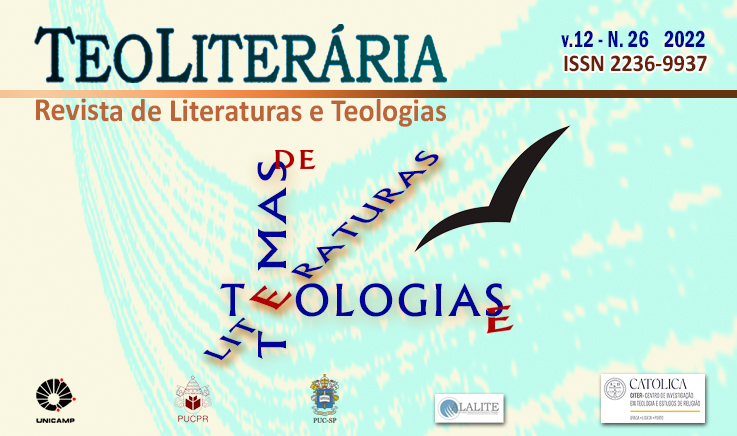Renato Russo and the political-existencial disenchantment of the 80s
DOI:
https://doi.org/10.23925/2236-9937.2022v26p76-102Keywords:
Brazilian Rock, Legião Urbana, Renato Russo, The 80Abstract
The article assumes that many songs produced by Brazilian rock bands in the early 1980s help us to understand the political and existential disenchantment of many young people of the time. The text retrieves information about this historical moment of Brazilian culture, delimited as a time frame (80s until the mid-90s), focusing on the poetic-literary production of Renato Russo, composer, lyricist and vocalist of the band Legião Urbana. The article argues that Renato Russo offered in his lyrics a true portrait of a slice of the middle-class youth of the time, especially young people born and / or raised in the Federal Capital (Brasília) who faced the contradictory situation of being the children of public officials and state agencies in full force of the military dictatorship. The cultural climate of disenchantment, bureaucratization, pressures and family conflicts was very well perceived by the lyricist who, through the band’s songs, expressed these anxieties and yearnings for freedom. The text seeks clues to understand that the great success of Renato Russo with the young people of the time, is due to the fact that he managed to offer in his lyrics the political and existential disenchantment of this generation.
References
CALVANI, Carlos Eduardo. “Existirmos... a que será que se destina? Choque ontológico, angústia e coragem de ser na canção Cajuína”. Revista Eletrônica Correlatio, vol. 16, n. 01, junho de 2017, p. 99-113. Acesso disponível em: https://www.metodista.br/revistas/revistas-ims/index.php/COR/article/view/7785.
LEMOS, Antonina. Renato Russo foi ‘irmão mais velho’. Jornal Folha de São Paulo. Caderno Folhateen, São Paulo, segunda-feira, 6 de junho de 1994.
LEONI, Carlos, “Entrevista com Renato Russo”. Letras, músicas e outras conversas, Rio de Janeiro: Gryphus, 1995.
MARCELO, Carlos. Renato Russo, o filho da revolução. São Paulo, Editora Planeta, 2016.
MENEZES, Thales de. De guru a mártir teen. Jornal Folha de São Paulo. São Paulo, 12 de outubro de 1996.
PEÇANHA, Dóris Lieth Nunes. Movimento Beat – abordagem literário, sócio-histórica e psicanalítica. Petrópolis: Vozes, 1988.
PRADO, Gustavo dos Santos. A imagem e o artista: a Legião urbana dentro de sua própria arte. Anais do III Encontro Nacional de Estudos da Imagem. Londrina, Universidade Estadual de Londrina, 2011. Disponível em: http://www.uel.br/eventos/eneimagem/anais2011/trabalhos/pdf/Gustavo%20dos%20Santos%20Prado.pdf.
RUSSO, Renato. “Renato Russo fala sobre o novo disco do Legião Urbana”. Revista Amiga, Rio de Janeiro, Ed. Bloch, 01 de janeiro de 1990, p. 19.
TILLICH, Paul. A Coragem de Ser (1950). Trad. Eglê Medeiros, São Paulo, Paz e Terra, 1972.
Published
How to Cite
Issue
Section
License
Copyright (c) 2022 Teoliteraria - Journal of Literatures and Theologies (On Line) ISSN 2236-9937

This work is licensed under a Creative Commons Attribution 4.0 International License.
TeoLiteraria – Journal of Literatures and Theologies owns the copyright of all published material. The whole reproduction of the articles of this Journal in other publications or for any other purpose, by any means, requires a written permission of the editor of this journal. Partial reproductions of articles (abstracts, more than 500 words text, tables, figures and other illustrations) must have a permission written by the publisher and the authors.

